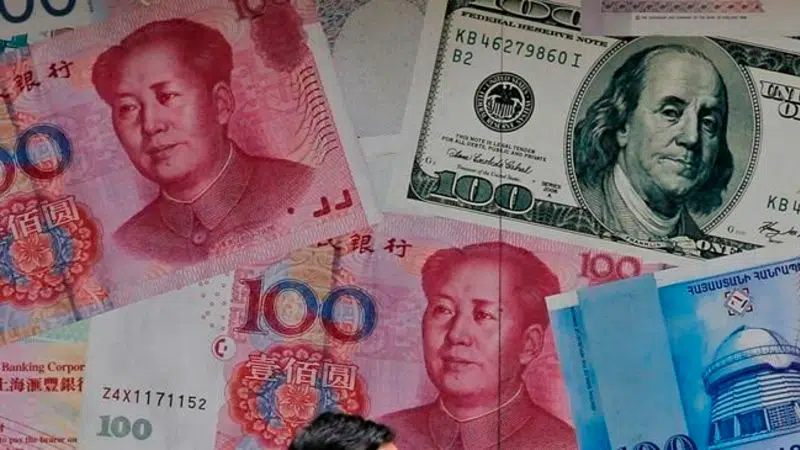
China’s yuan falls further to US dollar amid trade war fears
BEIJING — China’s yuan fell further Tuesday against the U.S. dollar, fueling fears about increasing global damage from Beijing’s trade war with President Donald Trump.
The yuan declined to 7.0562 to the dollar before strengthening to 7.0388 at midday. That came a day after Beijing sent global financial markets tumbling by allowing the currency to fall past the politically sensitive level of seven to the dollar for the first time since the 2008 financial crisis.
The Trump administration responded Monday by officially declaring China improperly manipulates the yuan’s value. That opens the way to possible new penalties.
“The latest U.S. move will likely harden China’s position in trade negotiations,” said Tao Wang of UBS in a report.


